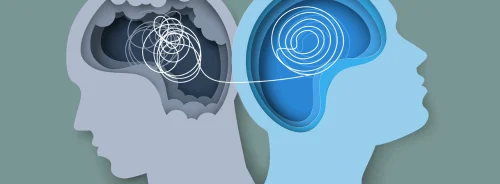Artificial Intelligence (AI) is making remarkable progress in the healthcare sector, with recent developments demonstrating its potential to revolutionise various aspects of medical practice. This week, several significant advancements have been announced, highlighting AI's role in simplifying administrative tasks, enhancing mental health care through culturally sensitive approaches, and ensuring robust data security. These innovations underscore the diverse applications of AI in healthcare, offering solutions that range from reducing documentation burdens to fortifying the security of digital health systems.
Voice AI Easing Administrative Burdens at Rural Health Centres
Rural healthcare providers are increasingly turning to voice AI to manage their administrative workloads, significantly improving their operational efficiency. The Utah Navajo Health System, CenterPlace Health, Access Health Louisiana, and PrimeCare Health have adopted Suki, a voice AI assistant, to handle clinical and operational documentation tasks. This technology enables ambient note-taking, coding, and dictation, substantially reducing the time clinicians spend on administrative duties. According to Suki, these health systems have seen a 72% reduction in documentation time and have cut down the time spent working on documentation at home by nearly six hours.
Suki's integration with various electronic health records (EHRs) such as Epic, Oracle Cerner, and Athenahealth through APIs makes it a versatile tool for Federally Qualified Health Centers (FQHCs) and Community Health Centers (CHCs). This capability is particularly beneficial for resource-limited settings, where the documentation burden can detract from patient care. By alleviating administrative pressures, Suki allows healthcare providers to focus more on patient interaction, thereby enhancing the quality of care delivered.
NLP Enhancing Cultural Sensitivity in Mental Healthcare
Natural Language Processing (NLP) is being leveraged to improve the cultural sensitivity of mental health services, addressing disparities in healthcare access and quality. Mpathic, a conversation analytics vendor, has received a grant from the National Institutes of Health (NIH) to use AI and NLP to analyse provider-patient interactions. This project aims to improve cultural attunement in mental health care by evaluating transcripts from health coaching sessions.
The initiative, titled "Empathy for Everyone: Generative AI that Improves Patient-Provider Cultural Attunement in Real Time," seeks to bridge the gap in mental healthcare for underserved racial and ethnic populations. The project aims to enhance therapeutic outcomes and patient satisfaction by fostering better cultural understanding between providers and patients. AI facilitates empathy and respect in healthcare interactions, which is a significant step towards equitable mental health care.
Securing Healthcare Data with AI-Driven Certifications
Ensuring the security of healthcare data is a critical concern, and AI is playing a pivotal role in achieving this goal. Companies like TruCare and 1upHealth have recently attained significant certifications that underscore their commitment to data security. TruCare has achieved the HITRUST Risk-Based, two-year Certification, and SOC 2 compliance, affirming its adherence to stringent security standards. Similarly, 1upHealth's Fast Health Interoperability Resources (FHIR) data aggregation platform has received the HITRUST one-year certification, demonstrating its capability to manage data protection effectively.
These certifications are crucial when cyber threats frequently target healthcare systems. Federal agencies and data security consultants urge healthcare providers to enhance their IT infrastructure security and ensure compliance with industry standards. By obtaining these certifications, companies like TruCare and 1upHealth are leading the way in safeguarding sensitive health information and mitigating cybersecurity risks.
The integration of AI in healthcare continues to revolutionise the industry, offering solutions that enhance efficiency, accessibility, and security. From reducing administrative burdens with voice AI to improving cultural sensitivity in mental health care through NLP, and ensuring robust data security with AI-driven certifications, these advancements highlight the transformative potential of AI. As healthcare systems increasingly adopt these technologies, they pave the way for more effective, equitable, and secure healthcare delivery. The ongoing commitment to innovation and security in AI applications promises a future where healthcare providers can offer better care while protecting patient information.
Source: HIMSS
Image Credit: iStock







